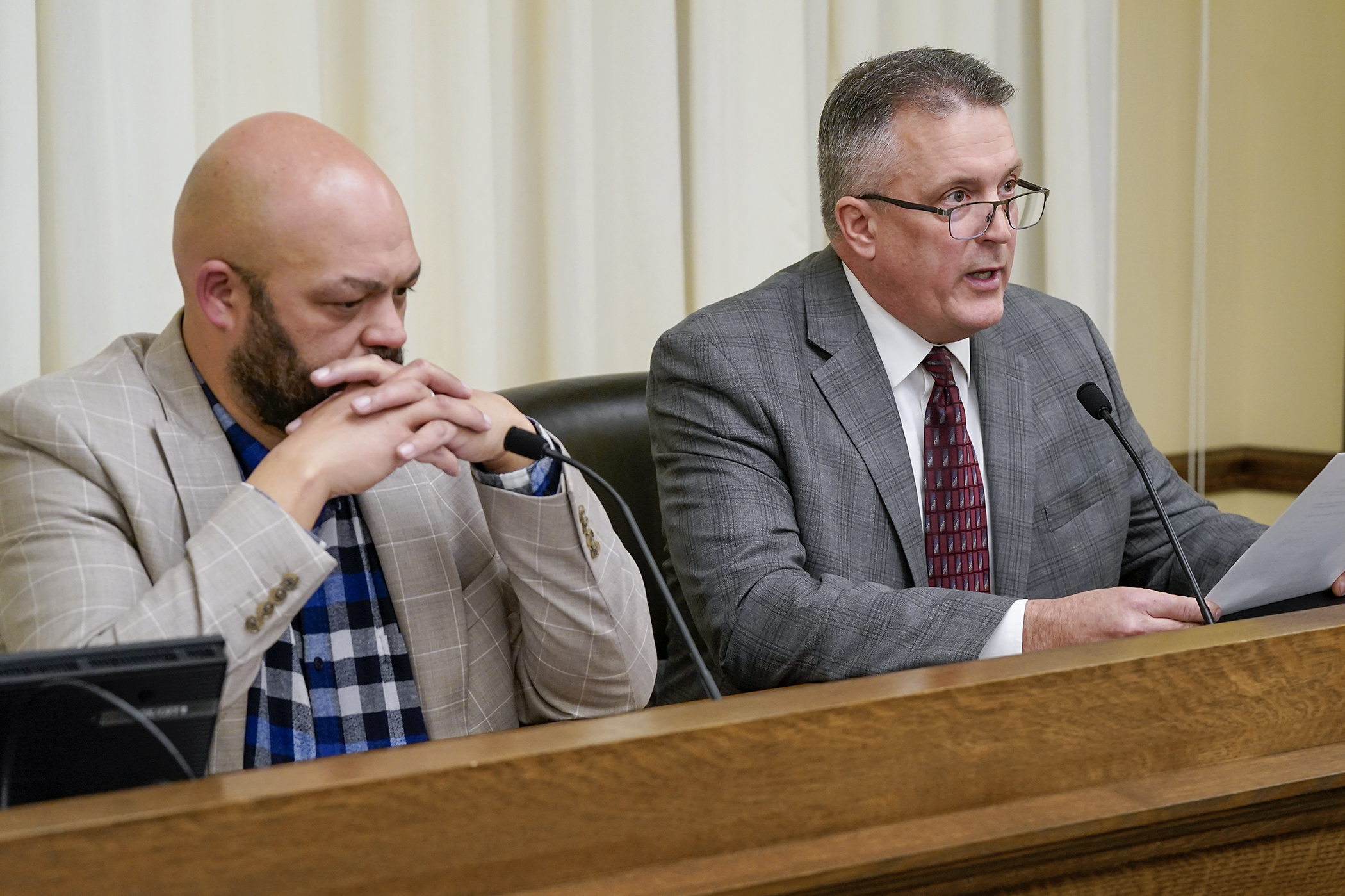Violent, repeat offenders shouldn’t get chance for downward sentencing, say bill supporters

Rep. Walter Hudson (R-Albertville) says he understands the rationale for having a justice system that has dual goals of punishment plus a chance at rehabilitation and reintegration into productive society.
But at some point, he told the House Public Safety Finance and Policy Committee Wednesday, violent repeat offenders who show no sign of being rehabilitated shouldn’t be offered a chance at reintegration.
“When you get your third violent felony conviction, we’re done,” he said. “Past that point, I don’t know if I care if you ever become a productive citizen, because you have opted out of productive society.”
He sponsors HF765, which would increase sentences for dangerous offenders who commit a third violent crime, require a mandatory sentence for dangerous offenders who commit a third violent felony, and increase sentences for offenders who commit a sixth felony.
The committee laid the bill over for possible inclusion in a budget bill.
A fiscal note shows a $69,000 cost in the 2026-27 biennium and $323,000 price tag in the 2028-29 biennium.
Currently, Minnesota criminal statutes spell out sentencing guidelines for the types of offenses specified in the bill, but judges have some leeway and can impose lower sentences for extenuating circumstances.
Hudson’s bill would essentially take away that “downward departure” option.
David Zimmer, public safety policy fellow at the Center of the American Experience, said there are far too many repeat offenders “cycling through our revolving door of justice.”
“Our incarceration rate currently stands at half the national average, and our weak sentencing and correctional policies are failing Minnesotans,” he said.
DFL objections to the bill focused on the idea that while Minnesota judges have been imposing tougher sentences in the last decade, this has not necessarily made society safer.
Rep. Kelly Moller (DFL-Shoreview) cited statistics from the Sentencing Guidelines Commission showing that, for example, incarceration rates for felonies grew from 63% in 1982 to 86% in 2023.
“What we have been doing isn’t working,” she said. “I think we need other solutions. I think we need prevention, we need rehabilitation. We definitely need people to be held accountable, too … I just don’t think this bill hits the mark.”
Related Articles
Search Session Daily
Advanced Search OptionsPriority Dailies
Speaker Emerita Melissa Hortman, husband killed in attack
By HPIS Staff House Speaker Emerita Melissa Hortman (DFL-Brooklyn Park) and her husband, Mark, were fatally shot in their home early Saturday morning.
Gov. Tim Walz announced the news dur...
House Speaker Emerita Melissa Hortman (DFL-Brooklyn Park) and her husband, Mark, were fatally shot in their home early Saturday morning.
Gov. Tim Walz announced the news dur...
Lawmakers deliver budget bills to governor's desk in one-day special session
By Mike Cook About that talk of needing all 21 hours left in a legislative day to complete a special session?
House members were more than up to the challenge Monday. Beginning at 10 a.m...
About that talk of needing all 21 hours left in a legislative day to complete a special session?
House members were more than up to the challenge Monday. Beginning at 10 a.m...